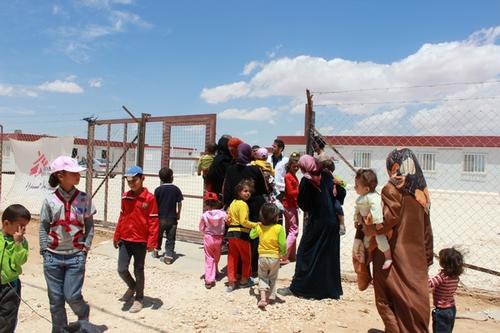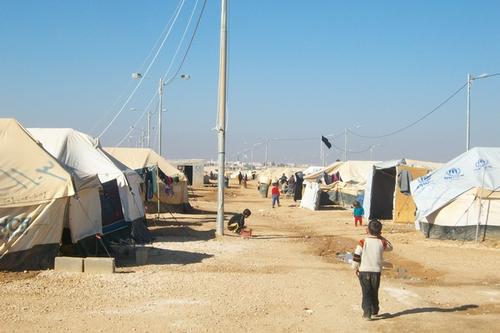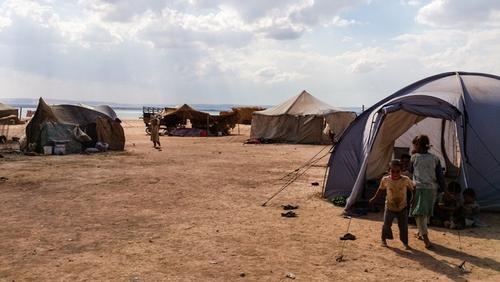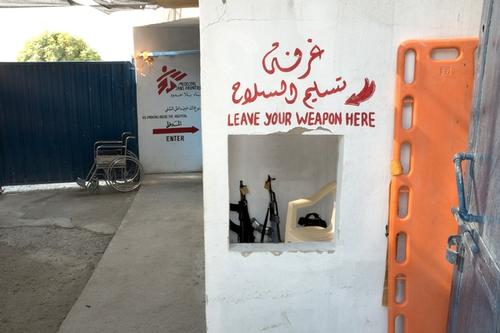Ameer is a nine months old baby, from Dara’a governorate. He arrived at Zaatari camp on 2 April 2013 with his parents, a four-year-old sister and a two-year-old brother. Shortly after his arrival, Ameer was brought to Médecins Sans Frontières (MSF) peediatric hospital, suffering from a severe throat and eye infection, resulting in a high fever.
The father, who preferred not to give his real name due to security threats inside Syria, said that they were pushed to leave Syria as the bombings have been very intensive and it was impossible for him to jeopardize the safety of his wife and children by staying there any longer.

“We crossed the border to Jordan at night leaving everything behind us, family members, property and an entire life! My head was full of questions all the way to the crossing point: Will we return to Syria? How long will we stay in Jordan? What kind of future awaits myself and my children there? And other tens and tens of questions which I couldn’t find answers to,” said Ameer’s father.
After an 8-hour journey from Dara’a to the Jordanian border, we arrived at the refugee reception point and were received by the Jordanian army. They gave us water to drink and blankets before we boarded a bus for Zaatari refugee camp,” the father continued.
“Before leaving Syria, we heard that Zaatari camp was big but seeing it with my own eyes is really different. My wife and I were taken by surprise at just how big it is! It’s even bigger than Dara’a, I mean, when it comes to the number of population,” Ameer’s father said.
“Living conditions are very difficult in the camp, my four-year-old daughter cried all through our first night in the little tent, or our new ‘house’ in Zaatari. She was saying, it’s very cold here, I want to go home! I didn’t know what to tell her. We were given blankets according to the number of family members and I couldn’t get an extra one. I took off my jacket and covered her tiny body till she slept. Our first night in Zaatari was very difficult. Now we have adapted ourselves”.
“Within days of our arrival to Zaatari camp, my son got sick. Access to health facilities in the camp is very difficult, you need to wait hours in long lines and the examination you get is very basic and quick. When I arrived at another hospital, I waited for two hours and a half before a nurse checked on my son.’’
"Ameer needed hospitalization because he didn’t receive proper care in the surrounding facilities at the early stage of his sickness, that’s why we came to the MSF hospital. Ameer is now much better and can swallow some milk. The MSF doctor said that he will be better if the treatment is completed.
“My father called me from Dara’a few hours ago saying that he has identified a safe and secure area nearby the village where we live, so I plan to come back soon as my son recovers,” Ameer’s father said.
“We left Syria seeking safety for our children and fleeing the bombings but if they will get sick because of the dust and coldness inside the camp, what’s the point of staying here? It’s better to go home.’’






